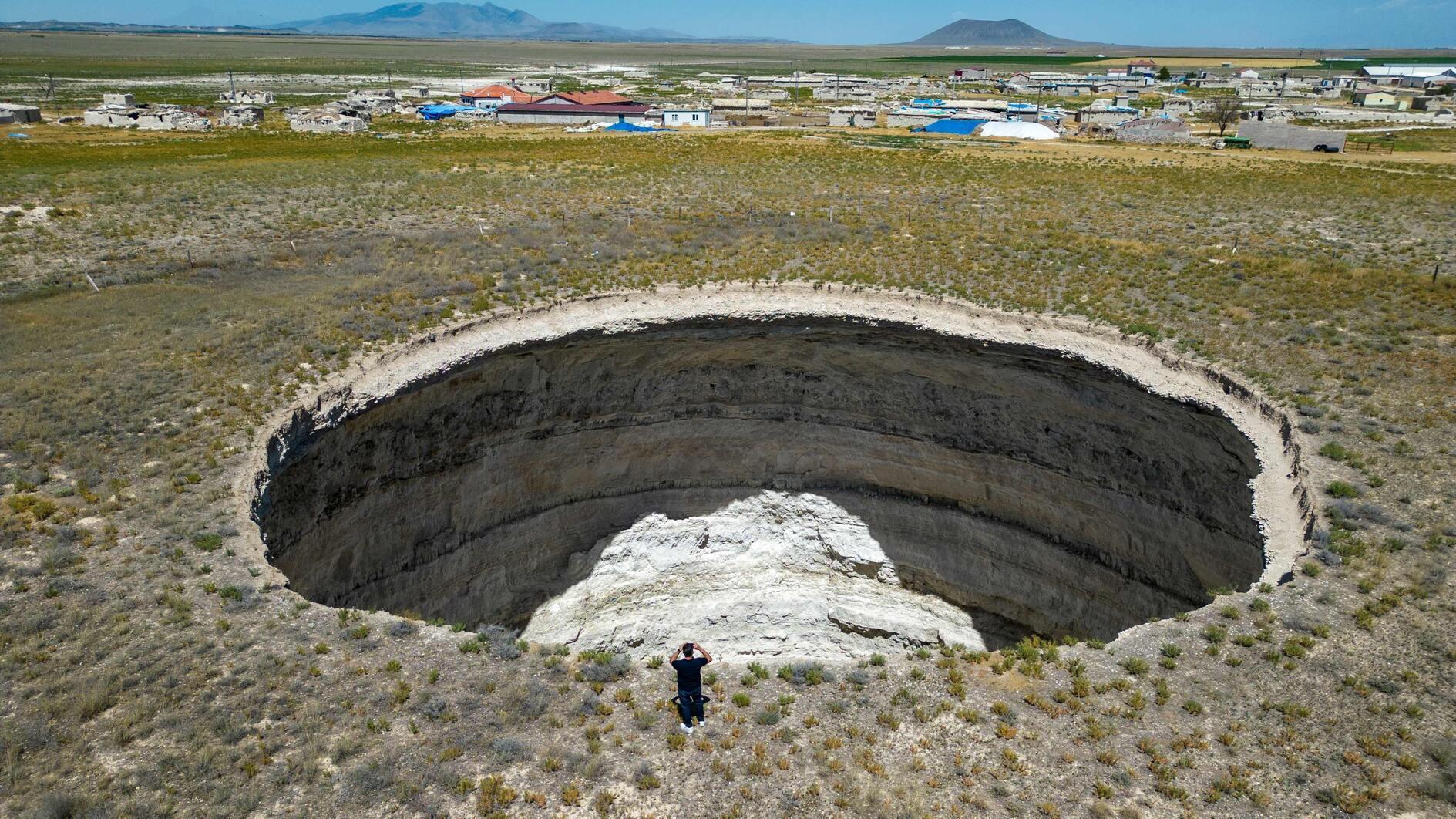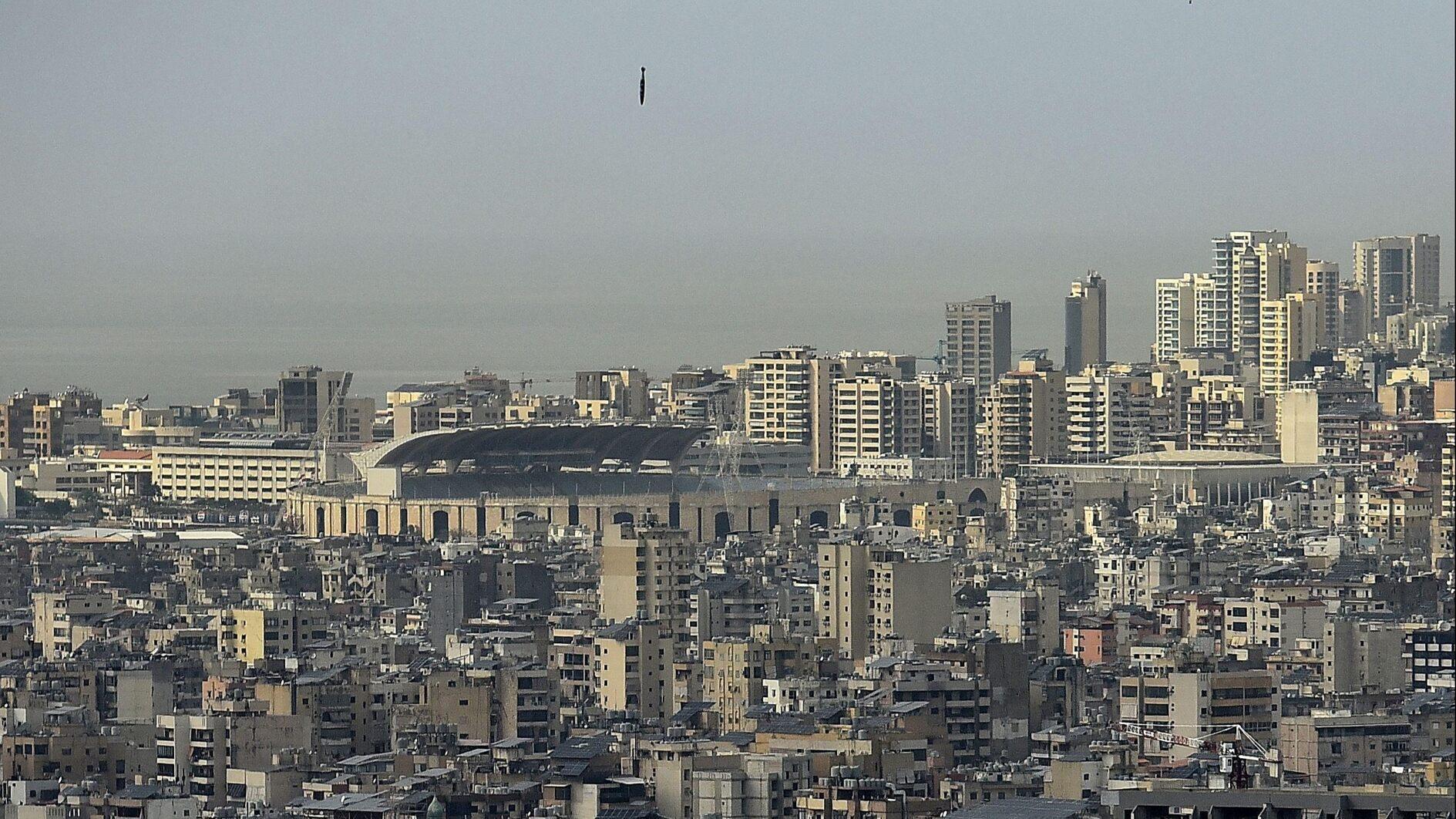Sinkholes spread concern in Türkiye’s parched breadbasket
Agence France-Presse- KONYA

Sinkholes have existed for centuries in Konya, a vast agricultural province known as Türkiye’s breadbasket but their numbers have risen in recent years due to increasing drought and a subsequent overuse of groundwater for irrigation, according to experts.
Every time Turkish farmer Fatih Şık drives his tractor across his cornfields he knows the earth could open up and swallow him at any moment.
Two giant sinkholes have already appeared on his land in Konya.
"Anywhere could sink, I keep thinking. And I know I'd be dead at the bottom," the 45-year-old farmer told AFP.
"But I have to work otherwise my family will starve."
Many sinkholes are dizzyingly deep, plunging up to 50 meters (165 feet). Invisible from a distance, you can suddenly come upon them in the large fields of corn, beetroot, wheat and clover that dot the Konya plain.
"One of the major factors with sinkholes is climate change," says Arif Delikan, an associate professor of Konya Technical University, who has counted 640 sinkholes in Konya, with more than 600 of them in the Karapınar district alone.
"Around 20 holes have emerged over the past year in Karapınar," he said, using a hammer to test the ground around the edge of one.
He and the country’s disaster agency identified more than 2,700 surface deformations and non-seismic fractures which indicate a sinkhole risk and need to be investigated.
Sinkholes occur where water dissolves the bedrock below the surface, causing it to cave in. They can form naturally or through "anthropogenic" causes, due to the direct or indirect action of people.
They can appear slowly or collapse very suddenly with little warning.
Last year, Adem Ekmekçi witnessed a large hole opening up which swallowed up several apricot and mulberry trees while walking through his fields.
"My foot suddenly slipped... I looked down and saw cracks in the ground," said the 57-year-old farmer, who has two sinkholes on his 24-acre (10-hectare) farm, each around 50 meters (164 feet) wide.
Over the winter, rainfall was 40 percent below average in Konya, putting even more pressure on farmers in a region that produces 36 percent of Türkiye’s wheat and 35 percent of its beetroot.
Some have tried to solve their water problems by drilling illegal wells, weakening the bedrock.
On the other hand, some entrepreneurs have turned the sinkhole crisis into an opportunity.
Last week, Cem Kınay opened a luxury 13-room hotel inside an 800-year-old Seljuk caravanserai, an ancient roadside inn, that sits on the brink of Türkiye’s oldest and most famous sinkhole.
Half-filled with water, it looks like a lake.
"We need to turn these fears into something positive," Kınay, 66, told AFP.
















